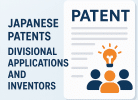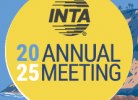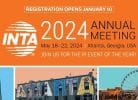A few years ago, we reported that music schools were suing the Japanese Society for Rights of Authors, Composers and Publishers (JASRAC). Since then, we produced updates in 2018 and last month. Finally, the decision of the Tokyo District Court is out, in favor of JASRAC, on February 28, 2020.
Article 22 of the Copyright Act was at issue, namely, that only works played for a public audience, were subject to copyright. The Tokyo District Court agreed with JASRAC that as anyone could contract and pay for lessons that used the songs whose copyright was managed by JASRAC, the music schools that used such songs are performing for a public audience and therefore required to pay royalties for them.[1]
JASRAC utilized litigation precedents: it formerly won a decision to force karaoke studios to pay for music played there and a decision that dance studio students counted as “public audience.” [1] JASRAC’s Seko Kazuhiro commented this is reasonable because the music teachers were playing the songs for profit.[3]
The annual royalty charge per music teaching business was to be 50,000 yen (USD $458).[3] That (seemingly small) fee caused great distress among the plaintiffs, however, who argued that they already do pay royalties for copyrighted music that was used in public recitals.[2] The plaintiff’s representative, the Ongaku kyoiku wo mamoru kai (“Society for Protection of Music Education”), appealed the case to the IP High Court in Tokyo on March 4, asserting the decision to be harmful to propagation of music education and the arts and out of line with the public’s assessment of the situation.[2]
So the fight over use of copyrighted music in music education will continue.
* The information provided on this website is for informational purposes only and is not intended as legal advice.
** For questions or consultation, please contact us for more information.
Contact: Taro Yaguchi
Sources
[1] AKADA, Yasukazu. “音楽教室から著作権料「年間10億円」の試算も JASRAC「市民感覚」を負かした法理論とは? [Usage royalties to be charged to music schools, estimated even at 1 billion yen per year; what legal reasons did JASRAC use to defeat public sentiment?]” Asahi Shimbun, Aera. https://dot.asahi.com/aera/2020030600015.html March 9, 2020. Accessed March 30, 2020.
[2] Ongaku kyoiku wo mamoru kai. Website, particularly its statement of March 5, 2020. Accessed March 30, 2020.
[3] TV-Asahi. “JASRACvs音楽教室 「著作権料は請求可能」地裁判断 [JASRAC vs music schools: district court decides ‘copyright fees may be charged’].”
https://news.tv-asahi.co.jp/news_society/articles/000177698.html March 2, 2020. Accessed March 30, 2020.






